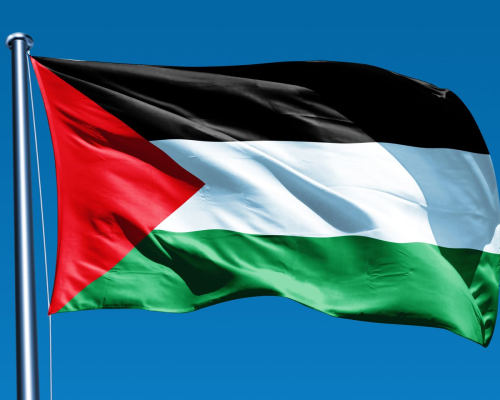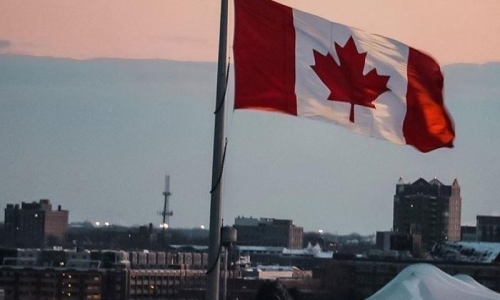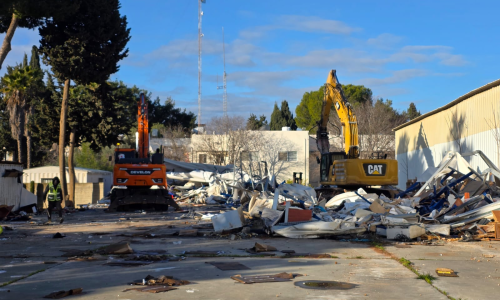By Taghreed Saadeh
On October 7, 2023, Hamas launched an unprecedented operation along the Gaza border, calling it the “Al-Aqsa Flood.” The attack was described as the largest of its kind in decades. Dozens of Hamas fighters crossed the Green Line and managed to capture hundreds of Israelis, both soldiers and civilians.
In the political and media discourse of Hamas, the operation was presented as the “beginning of Palestine’s liberation.” Hamas leaders, both political and military, spoke in decisive terms about the end of the occupation and the start of a “march toward Jerusalem.” On the other hand, some observers saw the attack as a harsh blow to Israel’s security system, which appeared paralyzed in the face of the surprise assault.
Despite the initial shock, voices quickly emerged from within Israel’s military and media establishments, raising critical questions, How was Hamas able to carry out such a large-scale operation without prior intelligence detection? Why was there no immediate military response despite earlier warnings?
These questions fueled growing suspicions of either gross negligence or political complicity, especially in light of the political crisis faced by Israeli Prime Minister Benjamin Netanyahu, who was under intense pressure due to widespread protests against his proposed judicial reforms and longstanding corruption charges.
Despite the repeated calls for answers, Netanyahu refused for months to launch an independent inquiry into the military and intelligence failures that allowed the attack—or into the government’s slow response during its early hours. He simply stated, “I will not start any investigation now. First, we must defeat Hamas.”
In a notable development, Netanyahu spoke yesterday for the first time openly about the issue of investigating the events of October 7. He did so during a pre-recorded interview produced by his team, followed by a closed meeting with the Knesset’s National Security Committee.
In the interview, Netanyahu denied any personal responsibility for the attack and shifted the blame to Israel’s security agencies, stating “I was not warned before October 7… I was repeatedly told there were no imminent threats.”
During the Knesset session, he said he does not oppose an investigation, but prefers it to take place “after the war ends.” He pledged to form a committee representing all political factions to ensure public trust in the findings.
Security analyst Amnon Abramovich told Israel’s Channel 12, “Netanyahu doesn’t mind destroying Gaza, but he fears exposing who left the borders open. A proper investigation would mark the end of his political career.”
But the heaviest price was paid by Palestinian civilians in Gaza. The Israeli assault that followed the “Al-Aqsa Flood” was the most violent in decades, resulting in the deaths of tens of thousands of Palestinians, most of them women and children, widespread destruction of infrastructure, including schools, hospitals, mosques, and homes. Reoccupation of parts of Gaza, particularly in the north and eastern outskirts. And mass internal displacement of more than 1.5 million Palestinians.
It seems October 7 did not only mark the start of a new war in Gaza, but may also have paved the way for a broader reshaping of the regional landscape. The events coincided with the assassination of Hezbollah Secretary General Hassan Nasrallah and the sudden collapse of the Syrian regime under Bashar al-Assad, developments that appeared without prior warning, hinting at regional arrangements that go beyond Gaza, Lebanon, or Syria.
Time will tell the full extent of the damage caused by the “Al-Aqsa Flood.” However, it is already clear that Hamas is being pushed out of the picture—particularly from governing Gaza. There appears to be a broad Arab and European consensus opposing the group’s continued rule, while Israel insists that no Hamas political or military presence will remain in the Gaza Strip.
At the same time, Hamas leaders continue to declare that the group has offered a comprehensive political solution, including a long-term truce. This, some observers say, reflects an attempt to reposition themselves politically and avoid mounting demands that they relinquish control of Gaza entirely.








